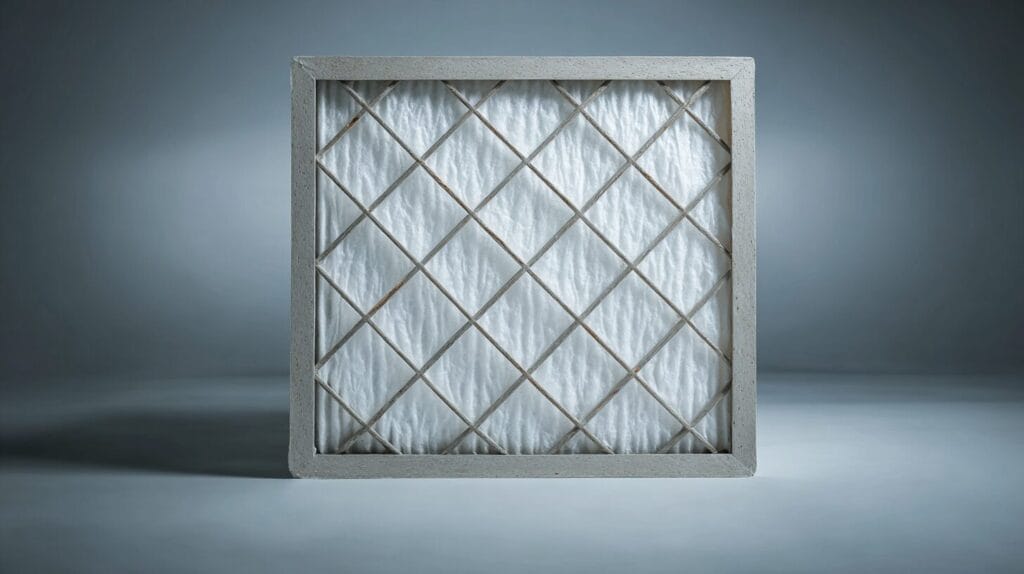
If you’ve noticed your allergies flaring up more than usual—even when you’re indoors—you’re not imagining it. Many homeowners in Charlottesville and Albemarle County are surprised to learn that their HVAC system could be contributing to their allergy symptoms. Dust, pollen, pet dander, and mold can all circulate through your home’s heating and air conditioning system, aggravating allergy sufferers and reducing indoor air quality.
At Fitch Services, we’ve seen firsthand how a poorly maintained HVAC system can impact your comfort and health. Understanding the connection between your HVAC system and your allergies is the first step toward breathing easier at home.
The Link Between Your HVAC System and Allergies
Your Charlottesville HVAC system is designed to move air throughout your home—warming it in the winter and cooling it in the summer. But it doesn’t just move air; it also moves whatever is in that air. If allergens like pollen, dust mites, or pet dander get pulled into your return vents, they can be recirculated into every room.
Over time, your filters, ducts, and even coils can become clogged with these particles. When that happens, your system struggles to operate efficiently and can push out air that’s less clean than you’d like. For those with allergies or asthma, that means more sneezing, coughing, and discomfort—even in what should be a safe indoor environment.
Common HVAC Issues That Worsen Allergies
Here are a few common culprits within your heating and air conditioning system that could be making your allergies worse:
- Dirty or clogged air filters
Air filters are your first line of defense against airborne particles. If they’re not changed regularly, they can’t effectively trap allergens. Instead, they become a source of buildup that releases dust and debris back into your living spaces. - Leaky ductwork
Small holes or cracks in your ductwork allow dust, insulation fibers, and outdoor allergens to enter your system. Once inside, they spread throughout your home, making it difficult to control your indoor air quality. - High humidity levels
Moisture buildup encourages mold and mildew growth—especially in air handlers or around coils. Mold spores are one of the most common indoor allergens and can quickly spread through your HVAC system. Consider a dehumidifier to reduce moisture levels. - Neglected HVAC maintenance
Without regular inspections and cleaning, allergens can accumulate in your system’s hidden areas. Over time, this buildup becomes a continuous source of irritation. - Improper ventilation
Homes that are too tightly sealed can trap stale, allergen-filled air inside. Without proper ventilation, there’s no escape route for airborne particles.
How to Improve Indoor Air Quality
Fortunately, you can take practical steps to reduce allergens and improve air quality throughout your home.
- Replace air filters frequently
For most homes, filters should be changed every 1–3 months, but if you have pets, allergies, or live in an area with high pollen counts like Charlottesville, more frequent changes may be beneficial. - Upgrade to higher-quality filters
HEPA filters or filters with a higher MERV rating can capture finer particles such as pollen and mold spores. - Schedule professional HVAC cleaning
Routine maintenance ensures that dust and debris don’t accumulate in your coils, blowers, and ducts. This not only helps your system run more efficiently but also keeps allergens under control. - Control humidity levels
A whole-home dehumidifier can help maintain ideal indoor humidity levels—typically between 30–50%. This discourages mold growth and makes it harder for dust mites to thrive. - Add air purification systems
Installing air purifiers that integrate with your HVAC system can significantly reduce allergens, bacteria, and odors. - Inspect ductwork for leaks
Sealing or cleaning your ductwork can prevent outside contaminants from entering your air supply. - Ensure proper ventilation
Sometimes, improving air exchange between indoors and outdoors can help remove trapped particles and refresh your air quality.
The Role of Your Entire Home System
At Fitch Services, we know that your comfort depends on more than just heating and air conditioning. Indoor air quality can also be influenced by plumbing and electrical systems.
- Plumbing leaks, especially around air handlers or in basements, can lead to hidden mold growth that spreads allergens through your HVAC system.
- Electrical systems play a role too—if your ventilation fans or air purifiers aren’t functioning properly due to electrical issues, they won’t effectively remove allergens from the air.
A well-balanced home comfort system means that heating, air conditioning, plumbing, and electrical components all work together efficiently and safely.
Signs Your HVAC System May Be Affecting Your Allergies
Not sure if your system is the culprit? Here are some warning signs to look for:
- You notice dust buildup around vents or registers even after cleaning.
- There’s a musty or damp odor when the system turns on.
- Family members experience increased sneezing, coughing, or congestion indoors.
- Your HVAC system runs longer cycles but still struggles to maintain comfort.
- Mold or dark spots are visible around your air handler or in the ducts.
If any of these sound familiar, it’s a good idea to have your system inspected. Sometimes, even a simple filter replacement or duct cleaning can make a noticeable difference in your comfort and air quality.
FAQs About Allergies and HVAC Systems
1. How often should I change my HVAC filters if I have allergies?
If you or someone in your household suffers from allergies, aim to replace filters every 30–60 days. More frequent changes help prevent allergens from recirculating through your home.
2. Can air duct cleaning really help with allergies?
Yes—if your ducts are contaminated with dust, mold, or pet dander, professional duct cleaning can reduce airborne allergens and improve indoor air quality.
3. What type of filter is best for allergy control?
HEPA filters or filters rated MERV 11–13 capture smaller particles like pollen, mold spores, and pet dander. Always make sure your system is compatible with the higher-efficiency filter.
4. Why do my allergies feel worse when the air conditioning is on?
This often means your system is circulating allergens. It could be due to dirty filters, mold in the coils, or leaky ductwork pulling in outdoor contaminants.
5. Does humidity affect allergies?
Absolutely. High humidity promotes mold and dust mites, while low humidity can dry out nasal passages, worsening irritation. Keeping indoor humidity balanced helps alleviate symptoms.
Take a Whole-Home Approach
Managing allergies isn’t just about medicine or avoiding the outdoors—it’s about controlling what’s inside your home. Your HVAC system plays a major role in that. When properly maintained, it helps filter out airborne irritants, keeps humidity in check, and promotes clean, comfortable air.
Whether you’re in Charlottesville, Albemarle County, or nearby areas, keeping your HVAC, heating, air conditioning, plumbing, and electrical systems in good condition is one of the best ways to protect your home’s air quality—and your family’s comfort.





